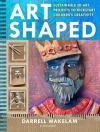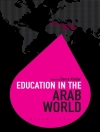CSCL has in the past 15 years (and often in conjunction with Springer) grown into a thriving and active community. Yet, lacking is a comprehensive CSCL handbook that displays the range of research being done in this area. This handbook will provide an overview of the diverse aspects of the field, allowing newcomers to develop a sense of the entirety of CSCL research and for existing community members to become more deeply aware of work outside their direct area. The handbook will also serve as a ready reference for foundational concepts, methods, and approaches in the field. The chapters are written in such a way that each of them can be used in a stand-alone fashion while also serving as introductory readings in relevant study courses or in teacher education. While some CSCL-relevant topics are addressed in the International Handbook of the Learning Sciences and the International Handbook of Collaborative Learning, these books do not aim to present an integrated and comprehensive view of CSCL. The International Handbook of Computer- Supported Collaborative Learning covers all relevant topics in CSCL, particularly recent developments in the field, such as the rise of computational approaches and learning analytics.
Daftar Isi
Part I: Foundations of CSCL.- History of CSCL/Development of the Field.- Contexts of CSCL.- Methods of CSCL.- Theories of CSCL.- Assessment, Outcomes, and Transfer of Learning in CSCL.- Emerging Areas for CSCL.- Part II: Collaborative Processes.- Communities and Participation.- Social Media, Massive Scale Learning and MOOCs.- Group Formation and Roles.- Argumentation and Knowledge Construction.- Dialogism.- Trialogical learning: object-oriented collaboration.- Knowledge building.- Group Awareness.- Metacognition in collaboration.- Analysis of Group Practices.- Part III: CSCL Technologies.- Technology Effects and Affordances.- Scripts: Adapting, Fading, and Deepening.- Interactive Surfaces: Both Stationary and on the Move.- Virtual Worlds and Game Based Learning Spaces , Epistemic games.- Immersive Environments: Learning in Augmented + Virtual Reality.- Learning Analytics in Collaborative Learning.- Representational Paradigms and Affordances for Collaboration.- Robots and Agents to Support Learning.- Tools and Resources for Setting up Collaborative Spaces.- Part IV: Research Methods and Methodologies.- Experimental and Quasi-Experimental Approaches.- Design-Based Research.- Case Studies, Ethnographic and Phenomenological Approaches.- Statistical and Temporal Analysis in CSCL.- Multivocality Approach.- Video Analysis in CSCL.- Artifact Analysis.- Finding Meaning in Log-File Data.- Gesture and Gaze: Multimodal Data in CSCL.- Language: Quantitative Approaches to Language in CSCL.- Language: Qualitative Approaches to Language in CSCL.
Tentang Penulis
Ulrike Cress is director of the Leibniz-Institut für Wissensmedien (Knowledge Media Research Center) and professor at the University of Tübingen. She studied psychology in Tuebingen, Germany, did a dissertation about self-regulated learning and got a venia legendi for psychology with a work on the information-exchange dilemma. With her lab ‘knowledge construction’ she is doing research on learning with digital media in formal settings as well as in informal settings. She is especially interested in mass collaboration, and much of her research aims to further develop the Co-Evolution Model of Individual Learning and Collaborative Knowledge Building, which she presented in 2008. She published more than 150 articles in peer-reviewed journals, and about 100 book chapters and contributions to conference proceedings. Since 2015 she is one of the four executive editors of the International Journal of Computer-supported Collaborative Learning.
Carolyn Rosé is aprofessor in the School of Computer Science at Carnegie Mellon University. Her research program is focused on better understanding the social and pragmatic nature of conversation and using this understanding to build computational systems that can improve the efficacy of conversation between people, and between people and computers. She grounds her research in the fields of language technologies and human-computer interaction and works closely with the Language Technologies Institute and the Human-Computer Interaction Institute, as well as serving as the director if the TELEDIA lab. Her group’s highly interdisciplinary work, published in over 250 peer reviewed publications, is represented in the top venues in 5 fields: namely, Language Technologies, Learning Sciences, Cognitive Science, Educational Technology, and Human-Computer Interaction, with awards or award nominations in 3 of these fields.
Alyssa Wise is Associate Professor of Learning Sciences and Educational Technology in the Steinhardt School of Culture, Education, and Human Development at New York University and the Director of NYU-LEARN, NYU’s pioneering university-wide Learning Analytics Research Network. She holds a Ph.D. in the Learning Sciences and M.S. in Instructional Systems Technology, both from Indiana University, and a B. S. in Chemistry from Yale University. Dr. Wise’s research focuses on the design of learning analytics systems that are theoretically grounded, computationally robust, and pedagogically useful for informing teaching and learning. Her most recent work has focused on analytics of collaboration, reflection, and math learning and the study of how people take up analytics as part of their educational practices. In addition to her numerous research contributions, Dr. Wise serves as Co-Editor-in-Chief of the Journal of Learning Analytics and on the editorial boards of the Journal of the Learning Sciences and the International Journal of Computer-Supported Collaborative Learning
Jun Oshima is a professor at the Graduate School of Integrated Science and Technology at Shizuoka University, Japan. He holds Ph.D. in applied cognitive science from the University of Toronto, M.A. from Hiroshima University, and B.A. from Fukuoka University of Education in educational psychology. Dr. Oshima’s research interest includes the instructional designs for learning as knowledge-creation from elementary schools through post-secondary institutions. Besides the design-based research, He has been conducting the development and application of socio-semantic network analysis of discourse to evaluate collective knowledge advancement in the knowledge-creation practice in recent years. He serves on the editorial boards of The Journal of the Learning Sciences and the International Journal of Computer-Supported Collaborative Learning.












